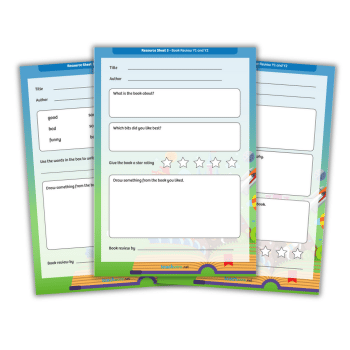
Think Fantastic Mr Fox is, well, fantastic? Wish Gangsta Granny could be retired? Help children express their views on fiction and non-fiction alike with these book review templates, worksheets and resources…
by Teachwire Share
Save Like --> Share
A book review is a great way for children to learn to communicate their thoughts and ideas about books they read. These book review template resources will help make students’ reviews the best they can possibly be.
You shouldn’t require children to write a book review every time they finish a book (this can be seen as punishing them for reading). However, these templates will make it easy for children to write their review in a succinct and structured way.
Why not keep the book reviews in your classroom reading corner or library to help children choose a book based on their peers’ recommendations?
Table of Contents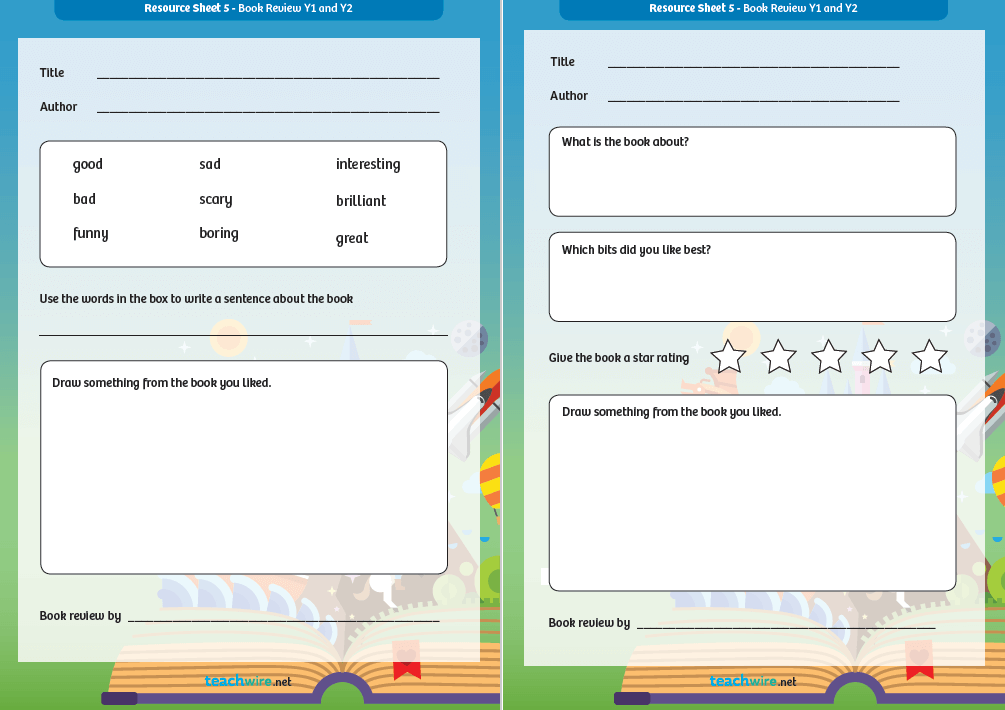
Writing book reviews enables pupils to offer opinions based on first-hand experiences. This free download, most suitable for KS1, contains three separate book review templates to choose from.
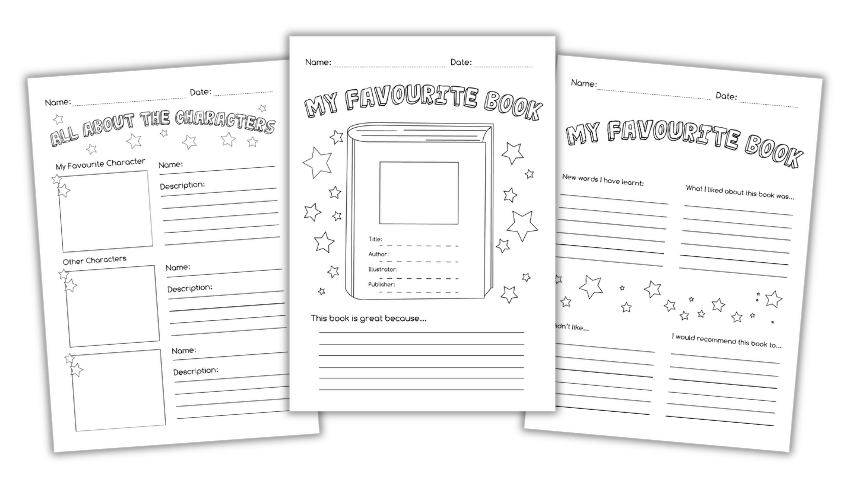
Use these free ‘My Favourite Book’ review worksheets to encourage children to talk about and recommend their favourite book to others. At the same time they’ll be improving their language and writing skills.
With this adaptable resource you can choose how many worksheets you use. Use only the first page to create a brief overview of a book. Alternatively, extend the activity by looking at character descriptions and developing higher-order thinking.
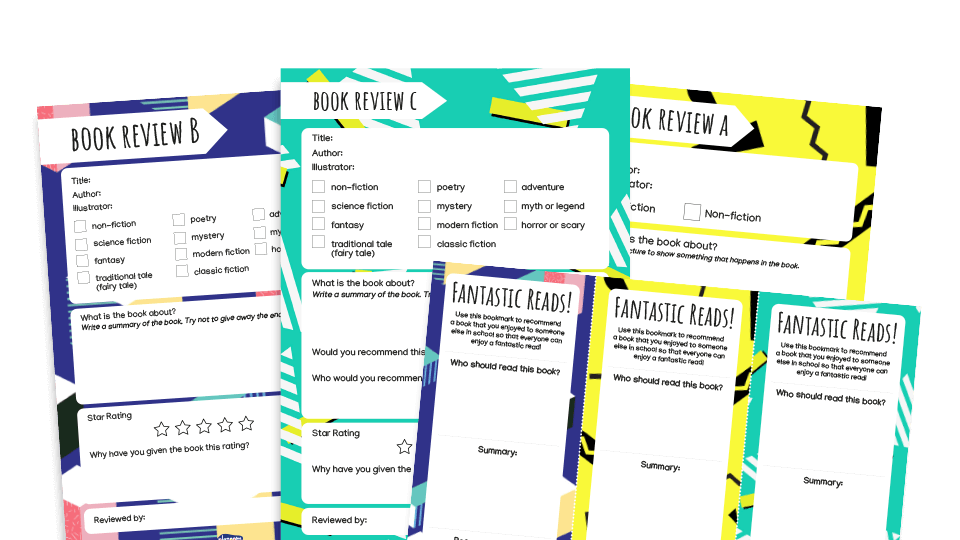
Create a love of reading in your school by using this set of fantastic free book review templates from literacy resources website Plazoom.
There are three templates in all – suitable for KS1, LKS2 and UKS2. Use them to create a class or school collection of book reviews. This will encourage discussion about book choices and help pupils develop a love of reading.
Also included is a ‘Fantastic Reads!’ bookmark. Students can write on these and place them inside books on display in your classroom or school library. This will highlight books to pupils that are recommended by their peers and create a real buzz around reading in your school.
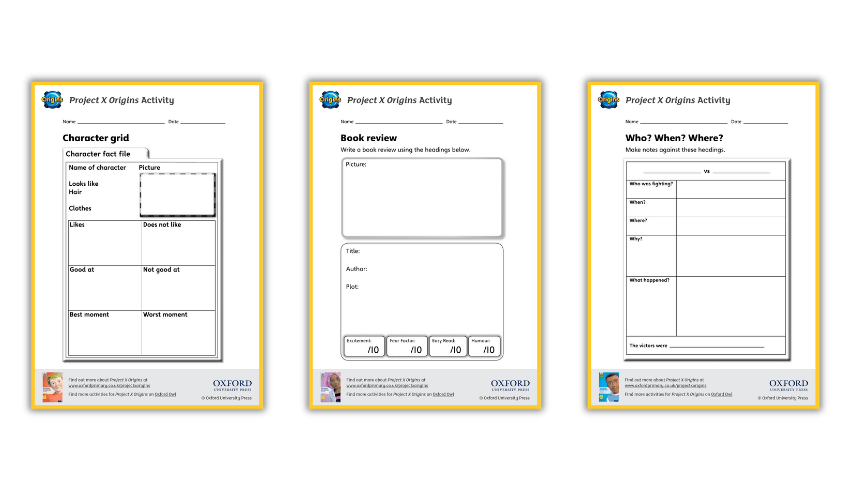
These reading comprehension worksheets from Oxford University Press help pupils to track the plot of whatever book they’re reading and take note of new vocabulary. They can also note down characters’ emotions, attributes and relationships.
Use the free worksheets to:
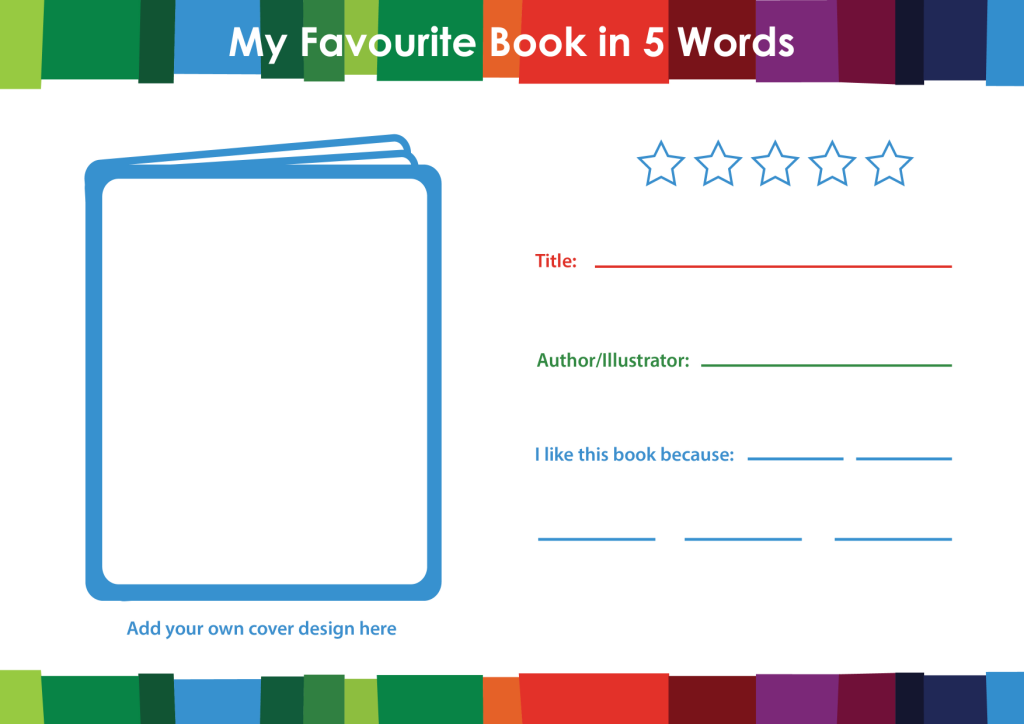
This five-word format is perfect for KS1 but you can also use it to encourage book cover creativity in KS2.
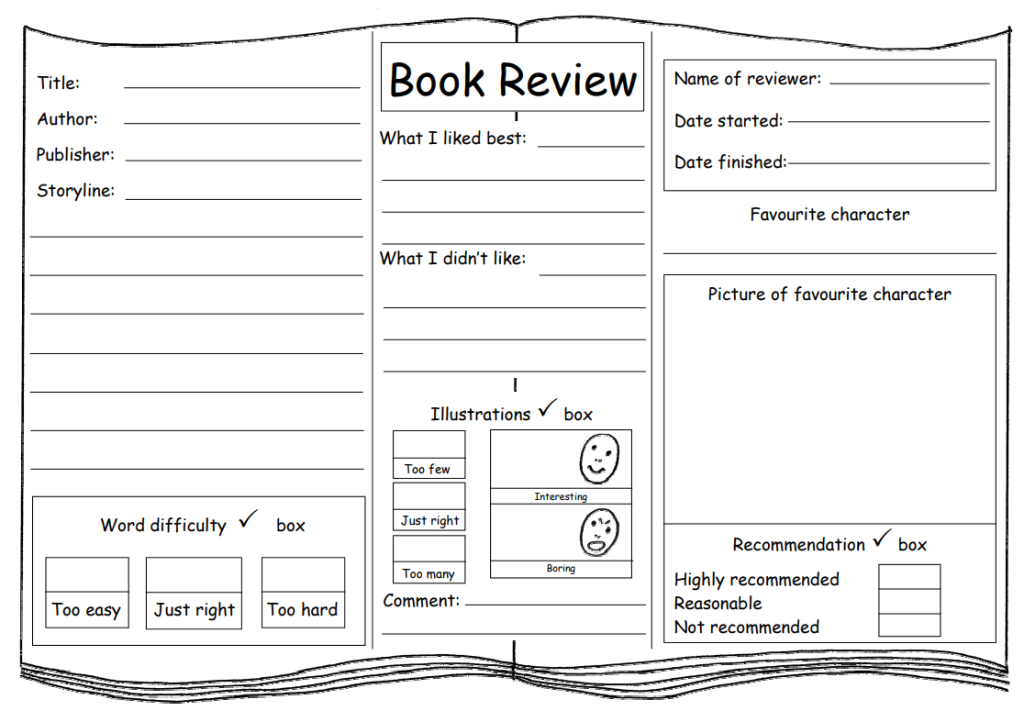
One for younger students, this nifty one-page review template asks children to fill in the key information, recap the plot and talk about what they liked and disliked. They can tick whether the reading difficulty was too easy, hard or just right.
Plus, they can draw the main character and say whether they would recommend the book to others.
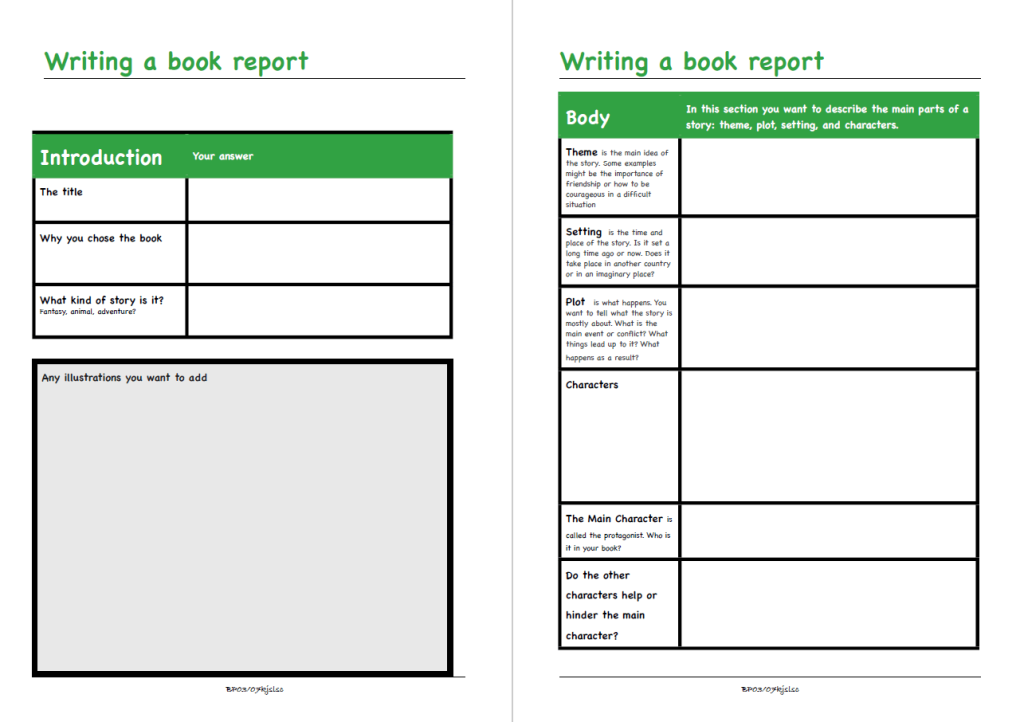
On the other end of the scale, this seven-page PDF framework helps children go into greater detail with their review. It asks about things like setting, tone, who the protagonist is, and personal things like why the child chose this book.
It also asks questions like ‘How did the story make you feel?’. Would children read other books by this author?
For a handy and concise list of things to consider when writing a book review, check out this BookTrust post. In it, author Luisa Plaja offers her top tips for how to write a brilliant review of the latest book you read – whether you liked it or not.
You'll also receive regular updates from Teachwire with free lesson plans, great new teaching ideas, offers and more. (You can unsubscribe at any time.)
Thank you for signing up to our emails!